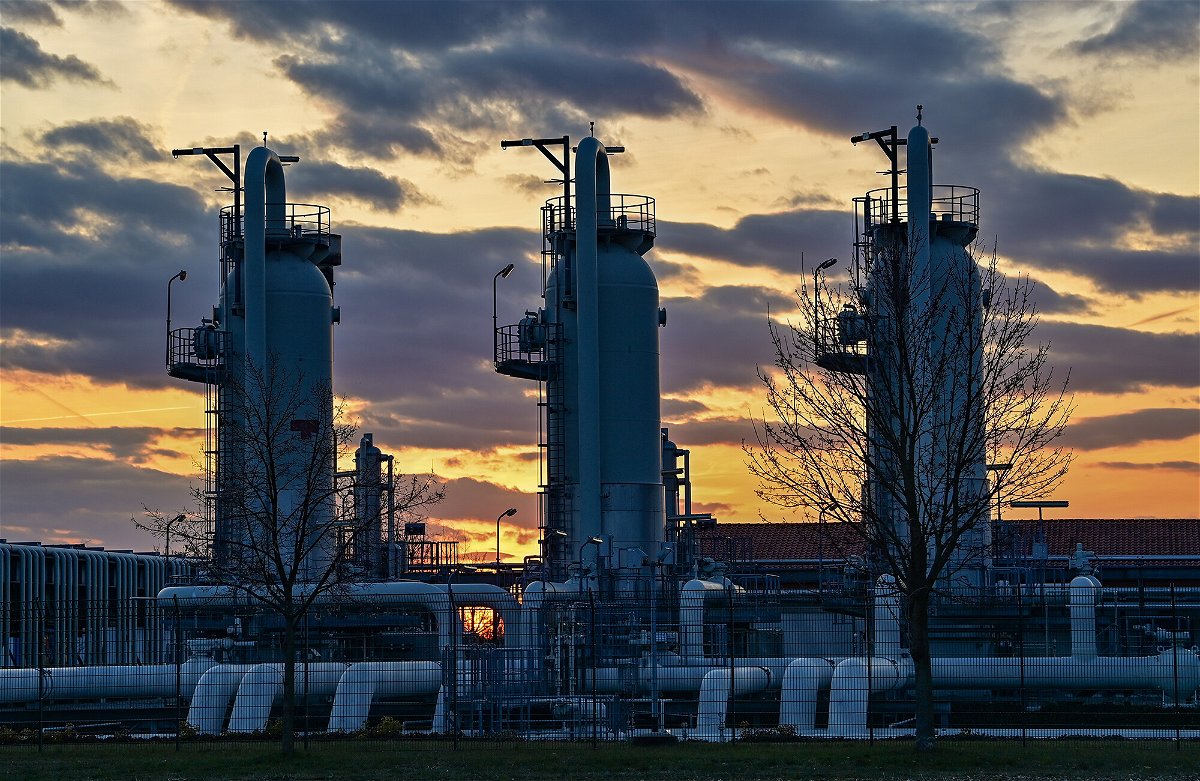War in Ukraine is scrambling the world’s ability to fight climate change

Gascade Gastransport's natural gas compressor station
By Alicia Wallace, CNN Business
The war in Ukraine has thrown the global economy into chaos — and the worst is yet to come, experts say.
The conflict has disrupted logistics, business operations and trade pipelines across the world: sea, land and air freight are taking roundabout routes to avoid no-fly zones and hazards of war; multinational companies are abandoning operations because of sanctions and pressure to sever ties; and countries are scrambling to meet near-term energy needs — in some cases doubling down on coal — in their efforts to reduce dependency on Russian exports.
“Everything is coming to roost,” said Alla Valente, senior analyst on Forrester Research’s security and risk team.
“It’s not just logistics time, it’s not just the cost of oil or how much oil is being used, it’s not just waiting to get our shipment of semiconductor chips, it’s not just the transportation labor shortage,” she said. “It’s not any one of those things, it’s all of those things.”
Dysfunction in supply chains and energy will lead to even higher costs for consumers, businesses, governments — and, ultimately, the environment, experts say.
“War is an energy-intensive business,” said Nikos Tsafos, an energy and geopolitics expert at the Center for Strategic and International Studies. “It takes energy to move things around, to move troops and equipment.”
Already, global oil prices have risen to their highest levels in nearly a decade, driving up costs for everything from food to fertilizer.
“Steeper price increases for food and fuel may spur a greater risk of unrest in some regions,” the International Monetary Fund warned last month. “Longer term, the war may fundamentally alter the global economic and geopolitical order should energy trade shift, supply chains reconfigure, payment networks fragment, and countries rethink reserve currency holdings.”
A retreat from Russian oil and gas
Those shifts are already happening as countries around the world seek to reduce their reliance on Russian oil, gas and other commodities.
The US has banned all Russian oil, natural gas and coal imports, and the United Kingdom has laid out a plan to phase out Russian oil imports by the end of the year and eventually put an end to natural gas imports as well.
The European Union, meanwhile, has said it would impose a fifth round of sanctions on Russia, including an import ban on Russian coal, though it has stopped short of banning Russian oil.
Europe imports about 40% of its natural gas from Russia, and has laid out a plan to reduce Russian natural gas imports by 66% this year.
“We must become independent from Russian oil, coal and gas,” European Commission President Ursula von der Leyen said in a statement last month. “We simply cannot rely on a supplier who explicitly threatens us.”
Russia’s actions “will have enormous economic repercussions for the world,” US Treasury Secretary Janet Yellen said in annual testimony to the House Financial Services Committee on Wednesday. In addition to creating global food insecurity and debt burdens, “we are witnessing the vulnerability that comes from relying on one fuel source or one trade partner, which is why it is imperative to diversify energy sources and suppliers,” she said.
Energy security vs. climate strategy
In the immediate term, EU countries are forced to explore a variety of means for keeping energy flowing and their citizens warm during the winter, Tsafos said.
And that very well could include the use of more coal. Countries that previously viewed natural gas as a stepping stone in energy transition plans are now considering burning coal for longer than planned, said Frans Timmermans, who is spearheading the EU’s Green Deal efforts. However, Timmermans cautioned that such a move should only be used as a stopgap and that a rapid acceleration toward renewable energy should follow.
To help fill the gaps, the US has also shifted some of its liquified natural gas exports to Europe, said Tsafos. And the Biden Administration has reportedly weighed exemptions to a recent ban on financing fossil fuel projects overseas, Reuters reported.
“I think the overarching objective of Europeans is to do things that don’t undermine their climate strategy, so they would like to not use more coal unless they have to,” Tsafos said, noting the European Union’s goals of being climate-neutral by 2050 and reducing greenhouse gas emissions 55% by 2030. “But so far, what their strategy boils down to is to try to buy whatever gas they can find, and I think the risk of that, is this could put a lot of stress on the gas market.”
Near-term energy security efforts aside, the current crisis will likely spur Europe and others to accelerate their climate plans, wean themselves off fossil fuels and invest more in renewable energy technologies, said Ryan Kellogg, a University of Chicago Harris School of Public Policy professor who specializes in energy economics, environmental policy and industrial organization.
“All of that takes time. It’s not really going to help with the acute high prices and the pain that consumers are feeling now,” he said. “Where it does help is when the next crisis hits.”
CNN Business’ Mark Thompson contributed to this report.
The-CNN-Wire
™ & © 2022 Cable News Network, Inc., a WarnerMedia Company. All rights reserved.